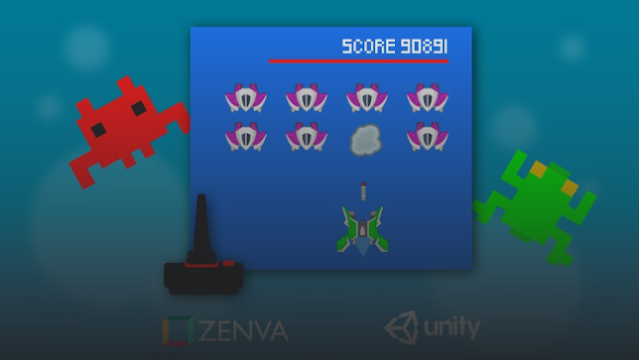100% FREE | Complete Guide to 2D and 3D Game Development with Unity
Unity is a popular game engine that has revolutionized the game development industry by providing a user-friendly interface for developing games in both 2D and 3D environments. With its powerful scripting system, physics engine, and asset store, Unity has become the go-to platform for developers and game enthusiasts alike. If you're looking to start a career in game development, then this complete guide to 2D and 3D game development with Unity is just for you.
Understanding Unity
Unity is a game engine that allows developers to create games in both 2D and 3D environments. It provides a range of features that are essential for game development, including a physics engine, scripting system, and asset store. Unity is a cross-platform engine, which means that games created with Unity can run on multiple platforms, including PC, mobile, and gaming consoles.
Getting Started with Unity
To get started with Unity, you'll need to download and install the engine. Unity provides both a free and a paid version of the engine, but for the purposes of this guide, we'll be focusing on the free version. Once you've installed Unity, you can start creating your first game.
Creating a 2D Game
Creating a 2D game in Unity is relatively straightforward. You'll need to create a new project, set up your game scene, and then start adding game objects to your scene. Game objects can be anything from sprites to sound effects, and they can be added to your scene using Unity's drag-and-drop interface.
Creating a 3D Game
Creating a 3D game in Unity is similar to creating a 2D game. You'll need to create a new project and set up your game scene, but instead of adding sprites, you'll be adding 3D models. Unity provides a range of tools for creating 3D models, including its own modeling software called ProBuilder.
Scripting in Unity
Scripting is an essential part of game development in Unity. Unity uses C# as its primary scripting language, but it also supports other languages like JavaScript and Boo. Scripts in Unity can be used to control game objects, create game mechanics, and interact with the physics engine.
Physics in Unity
Unity's physics engine is one of its most powerful features. The engine provides realistic physics simulations, including gravity, collision detection, and rigid body dynamics. Unity's physics engine can be used to create a range of game mechanics, including platformers, puzzles, and racing games.
Asset Store
Unity's asset store is a marketplace where developers can buy and sell game assets, including 3D models, sound effects, and scripts. The asset store is a valuable resource for developers who want to save time and money by using pre-made assets in their games.
Conclusion
Unity is an excellent game engine for developing games in both 2D and 3D environments. Whether you're an experienced developer or just getting started, Unity provides a range of tools and features that make game development easy and fun. With its powerful scripting system, physics engine, and asset store, Unity has become the go-to platform for game development. So, what are you waiting for? Start your game development journey with Unity today!



![[100% Off] Alternative Ways to Get Traffic to Your Website| Worth 119,99$](https://blogger.googleusercontent.com/img/b/R29vZ2xl/AVvXsEjyFCfd2oavhGGkSSOsWkTXcotkY5_WdlVzG2m_pHVBL5CYxMC1aNxxJcX9qYPdh4eNor4kOxWkHo54d2XqfQOWsrX4v-o9Lr_bA88rF4SB8QIK08bhyphenhyphen9wJ-O-1YBYmqtPp7yaSSpIRzf0/s72-c/%255B100%2525+Off%255D+Alternative+Ways+to+Get+Traffic+to+Your+Website+Worth+119%252C99%2524.jpg)


Aucun commentaire